25 Jun 2021
Close to 4,000 techies embarked on a reality-altering adventure at BrainHack 2021! In an immersive, digital world, they got to explore and challenge themselves in applying various emerging technologies.
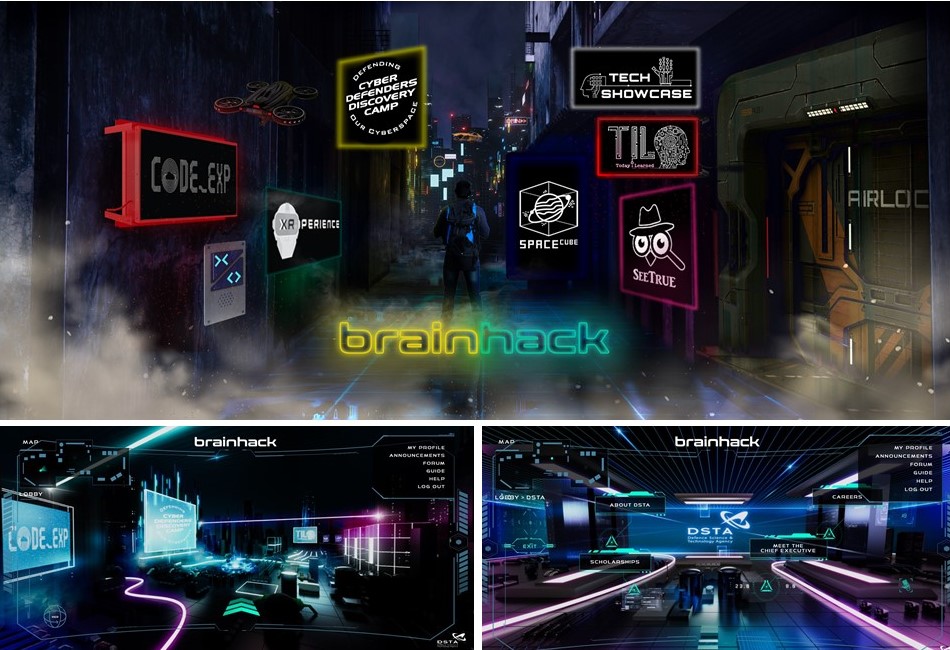
Held online from 24 May to 25 Jun 2021, the third edition of BrainHack featured a slew of activities such as hackathons, tech showcases and interactive workshops. This immersive experience also saw participants navigate various mission rooms in the digital world – a platform modelled after a supercomputer.
Yeo Swe Hon, a participant of the SeeTrue workshop that focused on using deep learning to spot fake news, shared: “This competition uncovered insights that I didn’t know existed. It really opened my eyes to a different world and piqued my interest in computer science even more.”
At the Today I Learned – AI Camp, participants got to explore the applications of AI to perform various tasks with computer vision and audio processing technologies. These AI enthusiasts trained and pitted their models in a competition that challenged them to identify animals in pictures and comprehend words hidden in ambient noise.
Student coders at the CODE_EXP workshop and hackathon also harnessed mobile apps and cloud technologies to design and develop solutions for the real world.
"One thing that really stuck with me was how we can apply what we learn in computer science to make a difference for others," said Christopher Lim, an undergrad from the Singapore Management University, and the team leader of the winning Team Techtris.
Given the travel restrictions brought about by the COVID-19 pandemic, Christopher and his teammates, all computer science undergraduates, developed an app that allowed people to re-create the travelling experience. Their app placed global landmarks in the comfort of people’s own homes, including pop-ups which appeared when the landmarks were chosen. Each pop-up also offered a brief overview of the landmark.
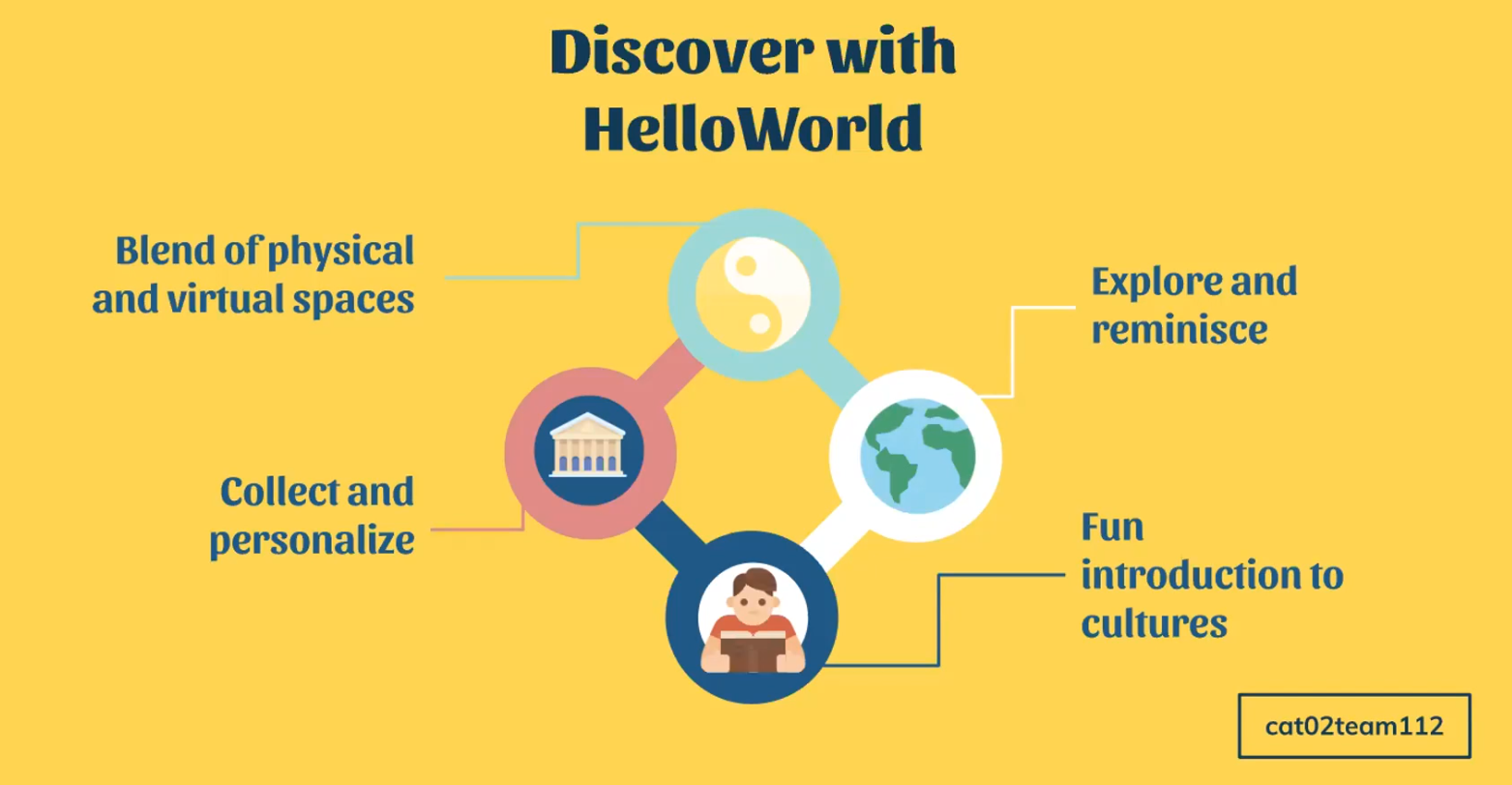
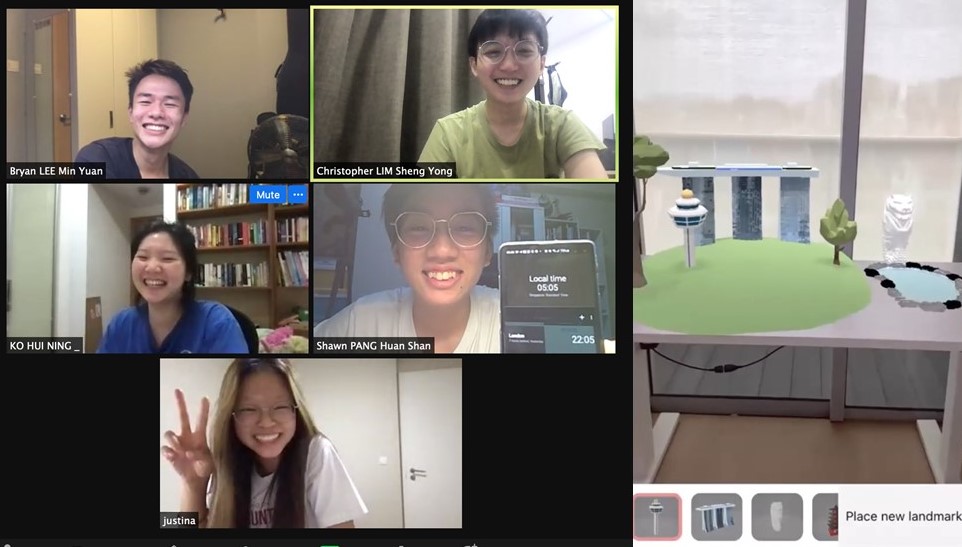
This year’s BrainHack went bigger and allowed participants to explore new technology domains.
For an out-of-this-world experience, SpaceCube was expanded to include several online training sessions this year, providing both teachers and students the opportunity to gain deep insights into space technologies and applications. Besides delving into orbital mechanics, theories and applications such as SpaceCube assemblies, these sessions also gave students a sneak peek behind Singapore’s space journey and the future of space development.
“The best part of SpaceCube 2021 was knowing that we have a group of people who are all interested in learning more about space, and the technology that allows us to venture into the unknown," shared Seah Chu Hern from the National University of Singapore.
This year’s BrainHack also saw the introduction of XRperience – a new workshop and competition on extended reality (XR)! Beyond simply learning about augmented reality, mixed reality and virtual reality (VR), students also got the chance to create their very own virtual environments to solve real-world problems. With the help of the VR kit sent to their homes, they even got to experience their solutions!
Showcasing their creativity, the students developed a myriad of solutions. This included safe spaces for relieving stress through a ‘breathing experience’, science lessons that came alive through interactive environments, a virtual firing range for soldiers to keep up with their training, as well as a simulated reality to learn how to evacuate during natural disasters.
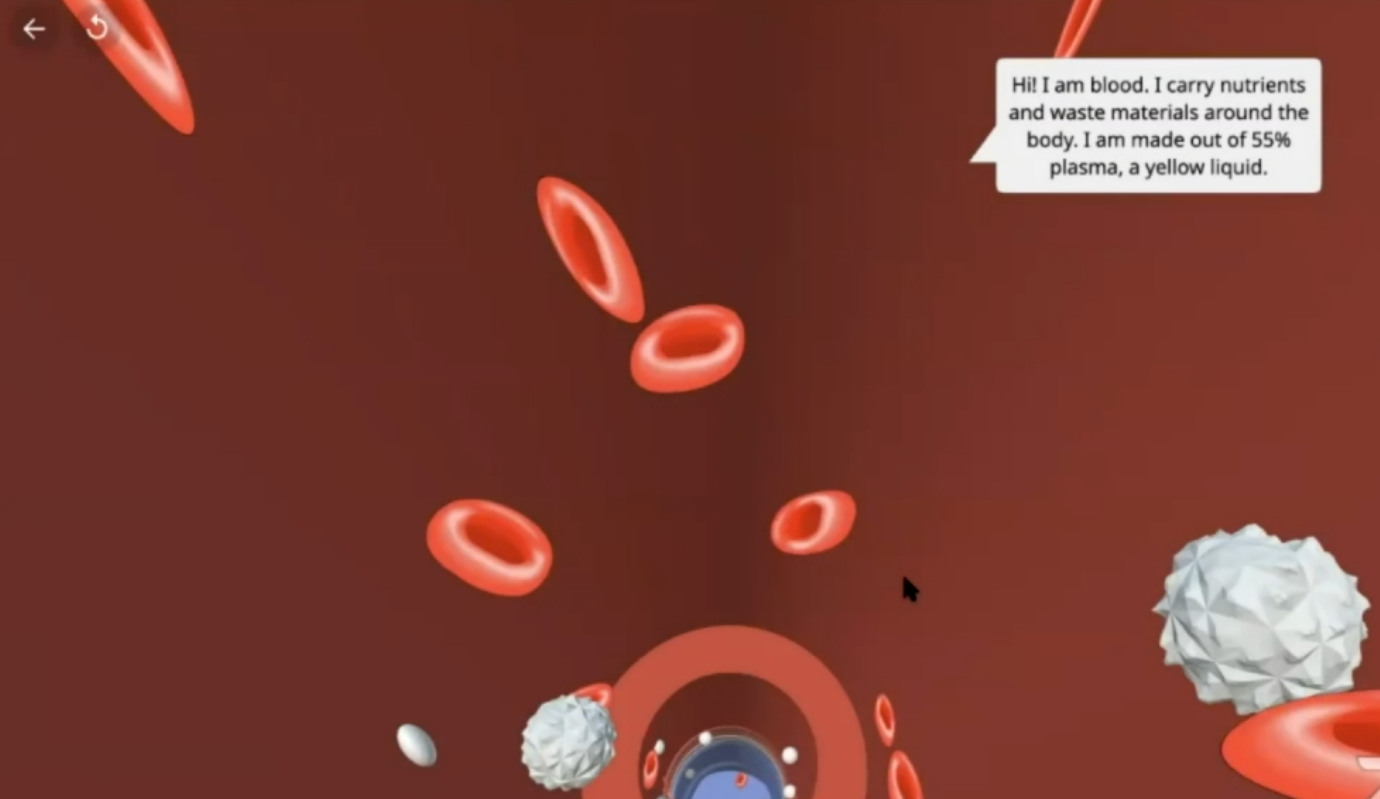
Unique science lessons

VR firing range
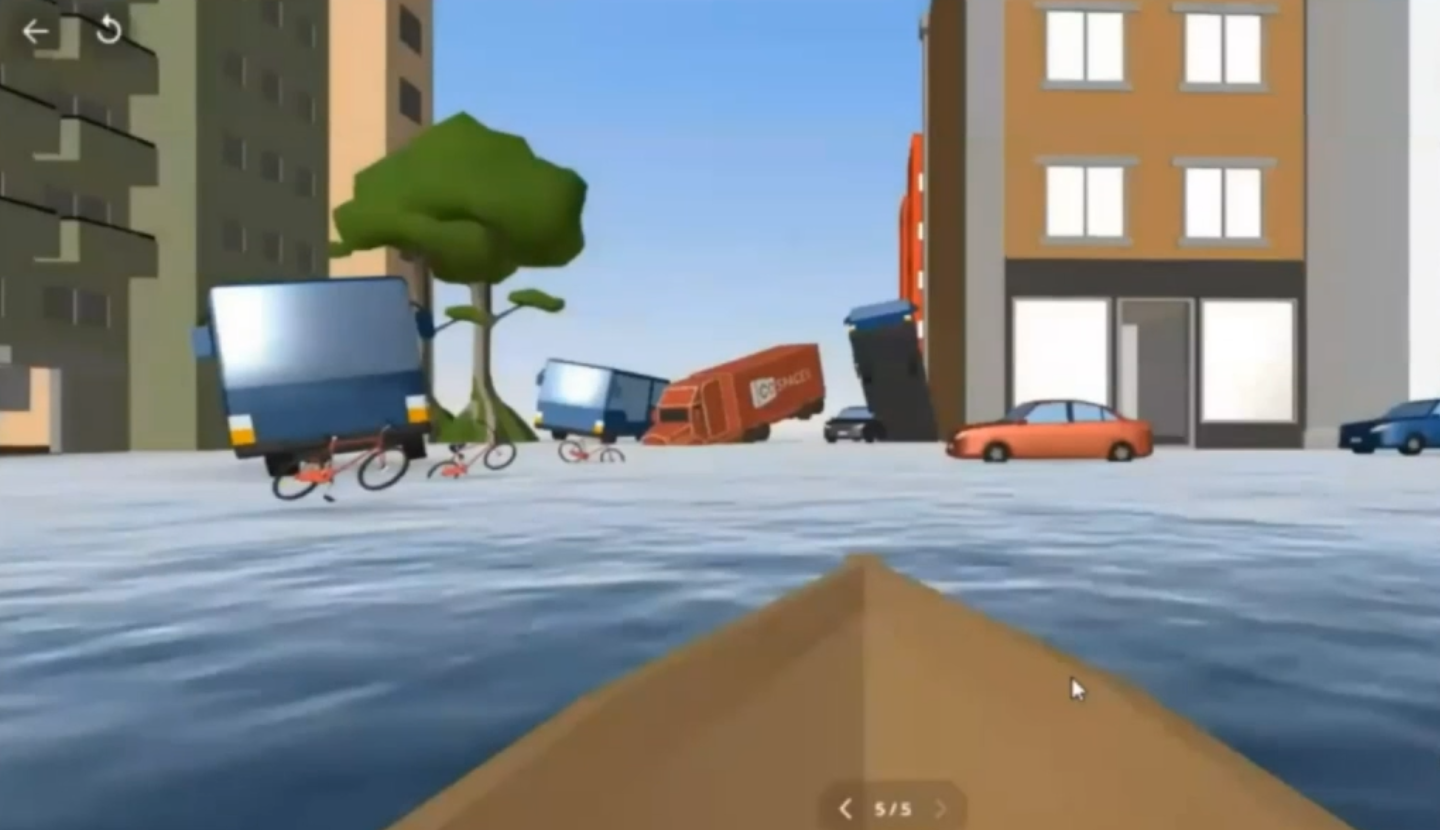
Evacuation responses to possible flooding
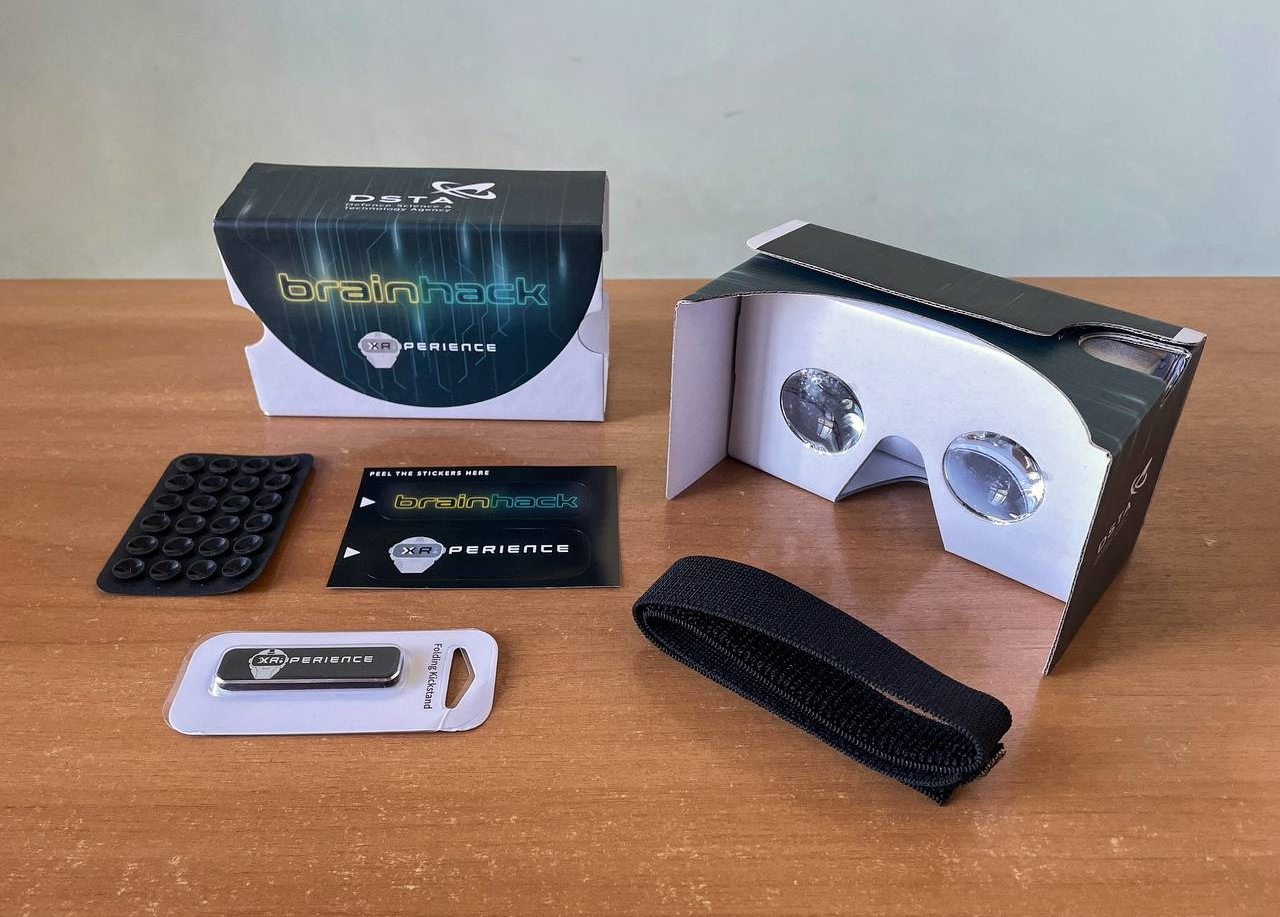
The VR kit helped the students see their solutions come to life.
"XRperience was a really good experience for us to try out VR," said Lim Caiying from Singapore Polytechnic, “VR is a great way for people to do things that they would not have been able to accomplish otherwise in real life."
Her teammate, Hemadri Rajam Ramkumar from Nanyang Technological University, added: "This workshop was such a good introduction to the technology. The learning curve was actually not that steep, and that made VR more accessible to students like us."
